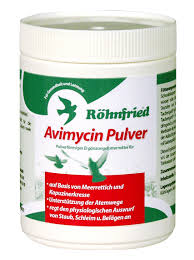
Against every disease an herb is grown – by Alfred Berger
"Against every disease an herb has grown".
The significance of this wisdom is growing today from year to year in the modern sport of pigeon. Because more and more bacteria become resistant to traditional antibiotics. The herbal antibiotics are therefore increasingly in the focus of our research. In addition to the action against bacteria, we find often an effect against fungi and viruses. Side effects of herbal antibiotics observed one hardly or are only slight, formation of resistance are unknown. Another advantage of natural antibiotics: You damage not the living in accordance with us beneficial bacteria, such as the intestinal bacteria, and thus indirectly strengthen our defenses. Therefore they are also good for prevention. Way they provide also with vitamins, minerals, trace elements and other vital substances.
We find strong antibiotic active substances in all cruciferous vegetables (E.g., horseradish) and very many plants of the lily family (E.g. garlic). The inhibitory effects are mostly due to the contained sulphur compounds and essential oils. Only our modern procedures allow the natural substances effective.
Tropaeolum majus and horseradish knows the traditional monastic medicine due to the healing effect of their ingredients - the addition - for centuries for the treatment of infections of the upper respiratory tract and urinary tract. But only high levels of addition in the medicinal plant can be achieved by a controlled cultivation and breeding. Addition inhibitory effect on the growth of pathogens.
The benzyl mustard oil of the Nasturtium has a wide antibacterial action in regard to Gram-positive and Gram-negative. Allyl mustard oil from the horseradish root shows a good effectiveness in the spectrum of Gram-positive (streptococci, staphylococci), during the 2-phenyl mustard oil an extended spectrum in the gram-negative (E.Coli and salmonella) area shows. Both metabolites together form a very effective herbal alternative to chemical antibiotics. In contrast to the classical antibiotics these natural active substances can kill viruses, yeasts and mushrooms - and exactly where the infection occurs. Because the addition appears in the upper part of the intestine into the blood. Thus, the naturally occurring "good" intestinal bacteria are not attacked. These are important in the intestine for digestion and for a functioning immune system. After their inclusion in the blood bound to circulate the addition of proteins in the circuit and eventually accumulate in their excretory organs, the urinary tract and the lungs. There, they then have their effect.
Avimycin powder
With a unique blend of freeze-dried horseradish and Nasturtium, Avimycin contains the precursors of the otherwise unstable addition in high concentrations. Only with feeding them are enzymatically formed and develops its activity.
Feeding recommendation:
For feeding through the grains feed.
For 20 pigeons 10 grams per day. The crowd on two meals
- distribute daily.
- Regularly feed for the metabolic support and if necessary.
- Travel time: after distance flights over two or three days at the beginning of the week.
- Young pigeons: to increase the natural vitality in all phases of the load (JTK) over several days.
- Mauser: 2-3 times per week
- Breeding: Do not feed to nest boy.
Bind with oils such as oregano sheep fat or Hekopherol on the feed. The feeding of the Chuck in combination with K K protein 3000 after flight or RO200 ready before the flight, as well as cub powder when young and old birds is recommended.
Incompatibilities with other complementary feedingstuffs are not known.




